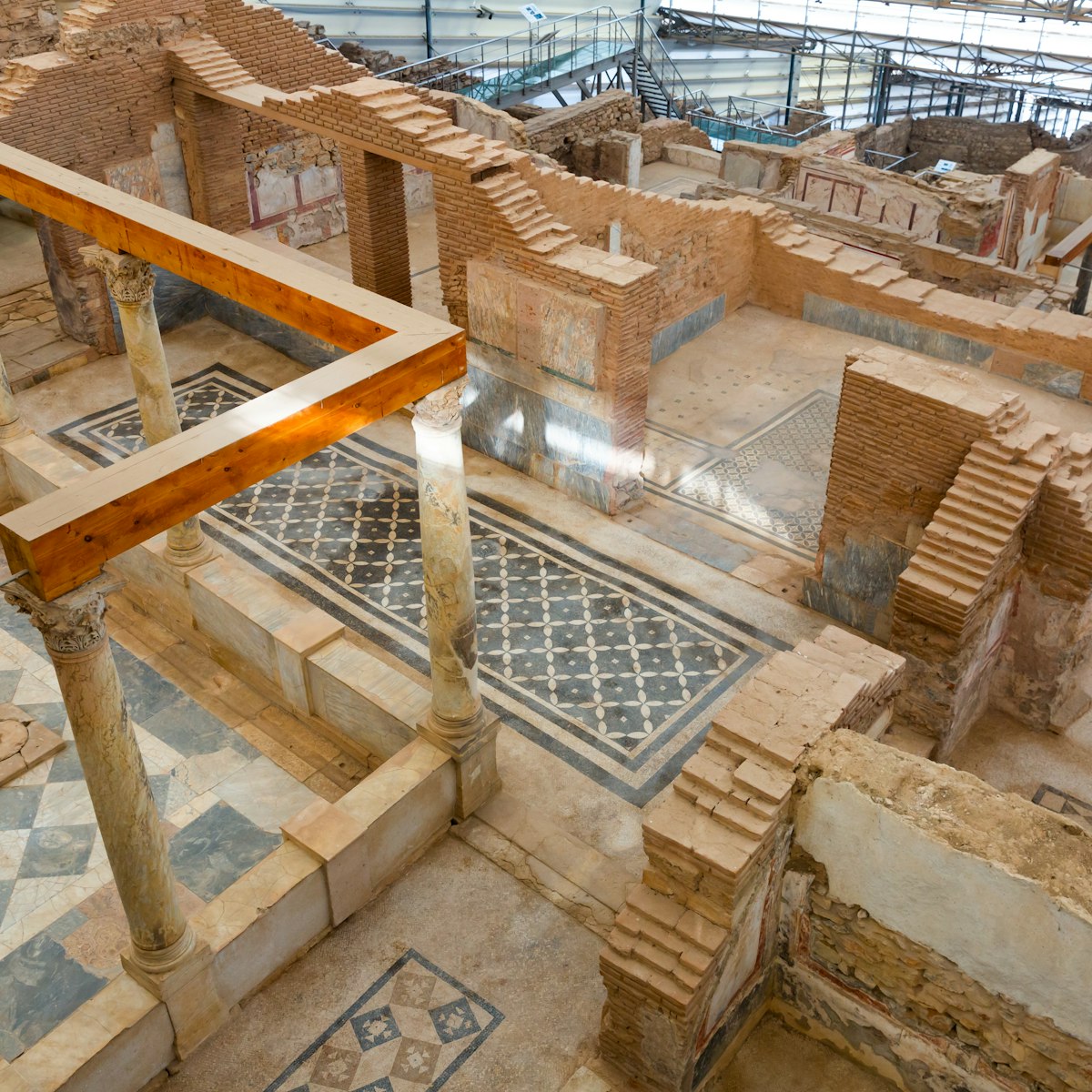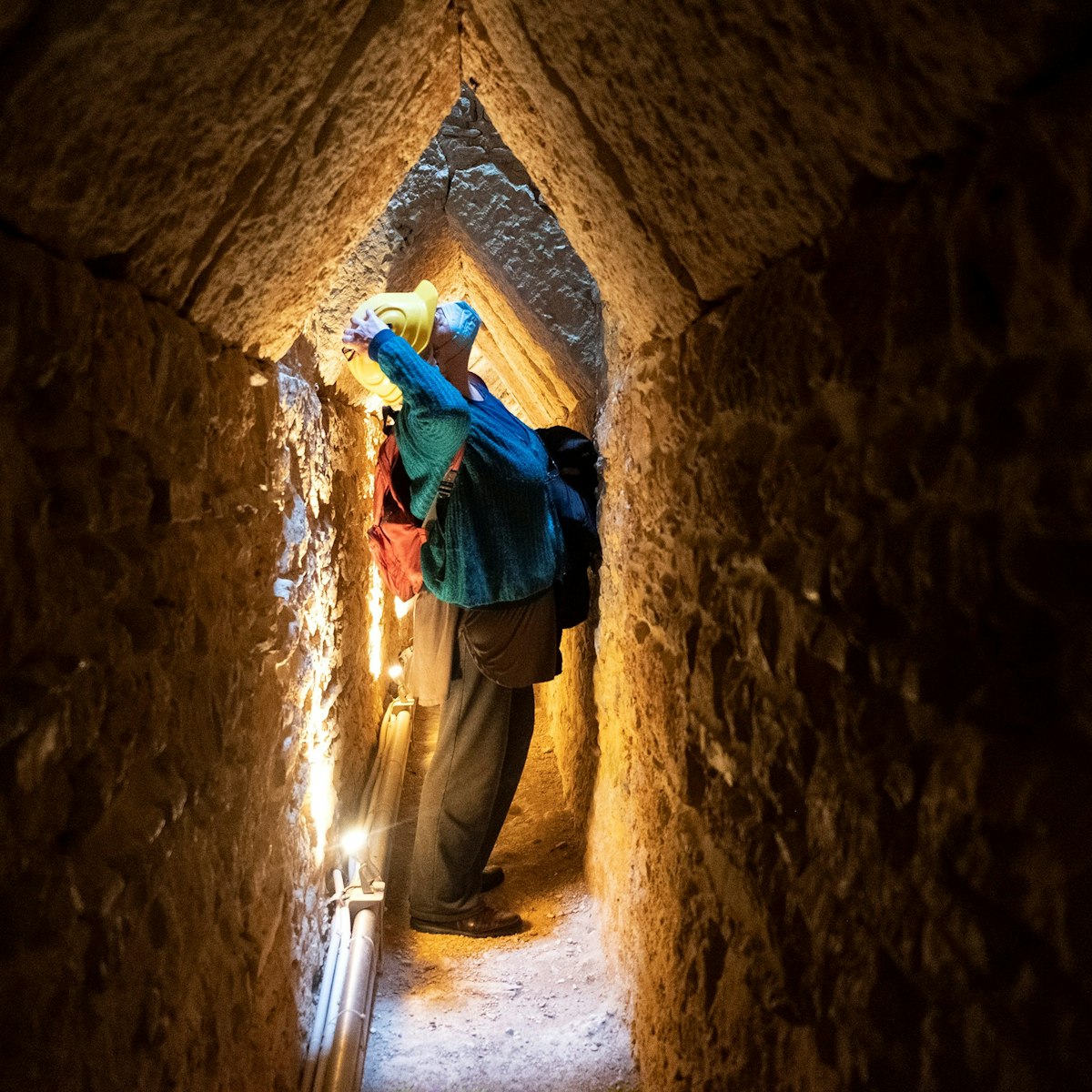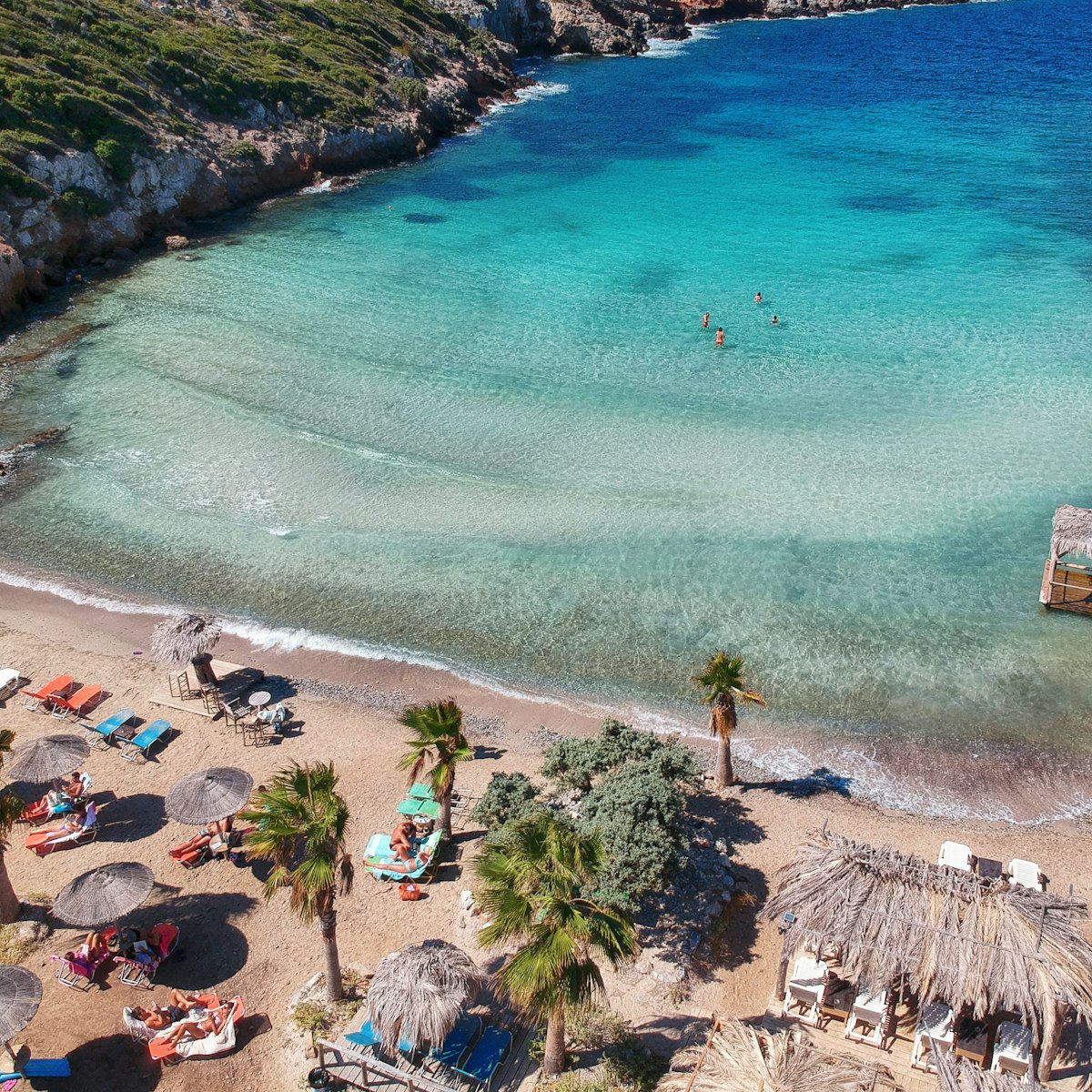An essential stop on every Ephesus itinerary, this small museum contains artefacts from the ancient city, including scales, jewellery and cosmetic boxes as well as coins, funerary goods and ancient statuary. Highlights include the famous phallic terracotta effigy of Bes in room 2, the huge statue of a resting warrior in room 4 and the two extraordinary multibreasted marble statues of Artemis in room 7. The timelines on the walls are extremely useful for placing objects within their historical context.
Finds from a gladiators' cemetery are displayed here too, with commentary on their weaponry, training regimes and occupational hazards. Also notable are the ivory frieze from one of the Terraced Houses in room 2, which depicts the Emperor Trajan and the Roman army in a victorious campaign against the Dacians; and the frieze from the Temple of Hadrian in gallery 8, which is devoted to the Imperial Cult. The latter shows four heroic Amazons with their breasts cut off – early Greek writers attributed Ephesus' founding to them.
The museum is probably best visited after touring Ephesus itself, so that you'll be able to imagine how the objects would have looked in their original context.





